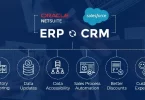Efficient medical records retrieval is critical to the success of insurance claim processing. These records are a key factor in determining the validity and value of claims, from verifying injuries to assessing the need for treatment. As insurance companies strive to meet growing demands for faster service, secure and reliable medical records retrieval becomes a cornerstone for success.
Contents
Challenges in Traditional Medical Records Retrieval
More traditionally, record retrieval can be quite a problem for insurance providers, not to mention that pain points range from delays in getting those records to frequent errors in data and compliance with HIPAA. These could foster slower claim resolutions, customer irritability, and increased operational costs. Besides this, retrieval methods that are outdated pose security concerns, leaving sensitive patient information vulnerable to potential breaches. The need for more effective, secure, and reliable systems is higher than ever.
Best Practices to Enhance Speed of Medical Records Retrieval
Efficient retrieval of medical records is needed for many industries, particularly healthcare, insurance, and legal. Speed and accuracy go a long way in case resolutions, processing of claims, and even patient care. Following are some best practices that help enhance the speed of medical records retrieval:
Standardize the Request Process
A clearly defined and standardized process for requesting medical records is essential. Standardization of forms, timelines, and procedures averts confusion and delays. An efficient request mechanism makes follow-up on pending requests possible. Also, proper education for requestors on required documentation will help prevent incomplete submissions of paperwork that cause delays.
Automation through Technology
It can also greatly reduce the time it takes to retrieve medical records by using automated tools. For instance, digital platforms and EHR systems facilitate immediate access to patient information and the ability of providers to respond promptly to requests for records. Tracking systems ensure that requests are not overlooked and can be handled with speed. These are cloud-based solutions that centralize the storage of data and make it accessible from multiple locations for easier and faster retrieval.
Partner with Trusted Record Retrieval Vendors
Outsourcing record retrieval to specialized vendors who have the technology and expertise in the field expedites the process. The retrieval companies generally develop relationships with health facilities and understand how to retrieve records with as much ease as the complex web of regulations such as HIPAA allows. If one operates with trusted partners, the retrieval process is smoother and less likely to result in wait times and inaccuracies.
Technology in Improving Security and Efficiency
Technology, therefore, enhances both the safety and secure medical records retrieval in insurance on the part of the insurance companies. Advanced digital solutions will definitely be able to help these companies operate more seamlessly without compromising the integrity of strict privacy laws.
- Digital Platforms for Secure Storage and Retrieval: Cloud-based platforms and secure online portals can ensure safety and immediate access to medical records. These systems encrypt sensitive information, ensuring that while data is being transferred or stored, it remains safe. The use of secure digital platforms ensures that HIPAA and other related regulations on privacy are complied with, offering an added layer of protection against data breaches.
- EHR System Integration: Most healthcare service providers use an EHR system to maintain the records of their patients. Integrating this system with an insurance company means seamless and quick retrievals of correct and updated medical records of a patient. For example, integration in this regard will eliminate manual data entry and hence minimize errors, thus offering great facilitation in hastily resolving the claims.
- Blockchain for Data Integrity: Blockchain technology can be employed to make medical records secure and intact. This is a kind of ledger where transactions are recorded in an unalterable way. In this respect, with blockchain, the insurance providers would be confident about the authenticity of the records retrieved, thus building trust in the claims process.
Success Stories: Secure Retrieval in Action
A number of insurance companies have implemented secure and efficient medical record retrieval systems and are recording exceptional outputs. For instance, a healthcare insurer instituted a secure digital record retrieval system and recorded the following improvements: faster times for settling claims, fewer breaches, and higher levels of compliance with privacy legislation. Further, the system smoothens customer satisfaction and operational efficiency by reducing manual errors and enhancing workflow.
Wrapping Up
In summary, safe medical records retrieval in insurance helps to enhance efficiency and security in claim processing. Insurance providers must aim for process simplification through vendor partnerships, technology use, and a security mindset. Companies will be able to minimize delays, enhance compliance, and provide more satisfying service to their customers by following these best practices. The time has come when insurers should look toward advanced tools and services for efficient and secure medical records retrieval.







